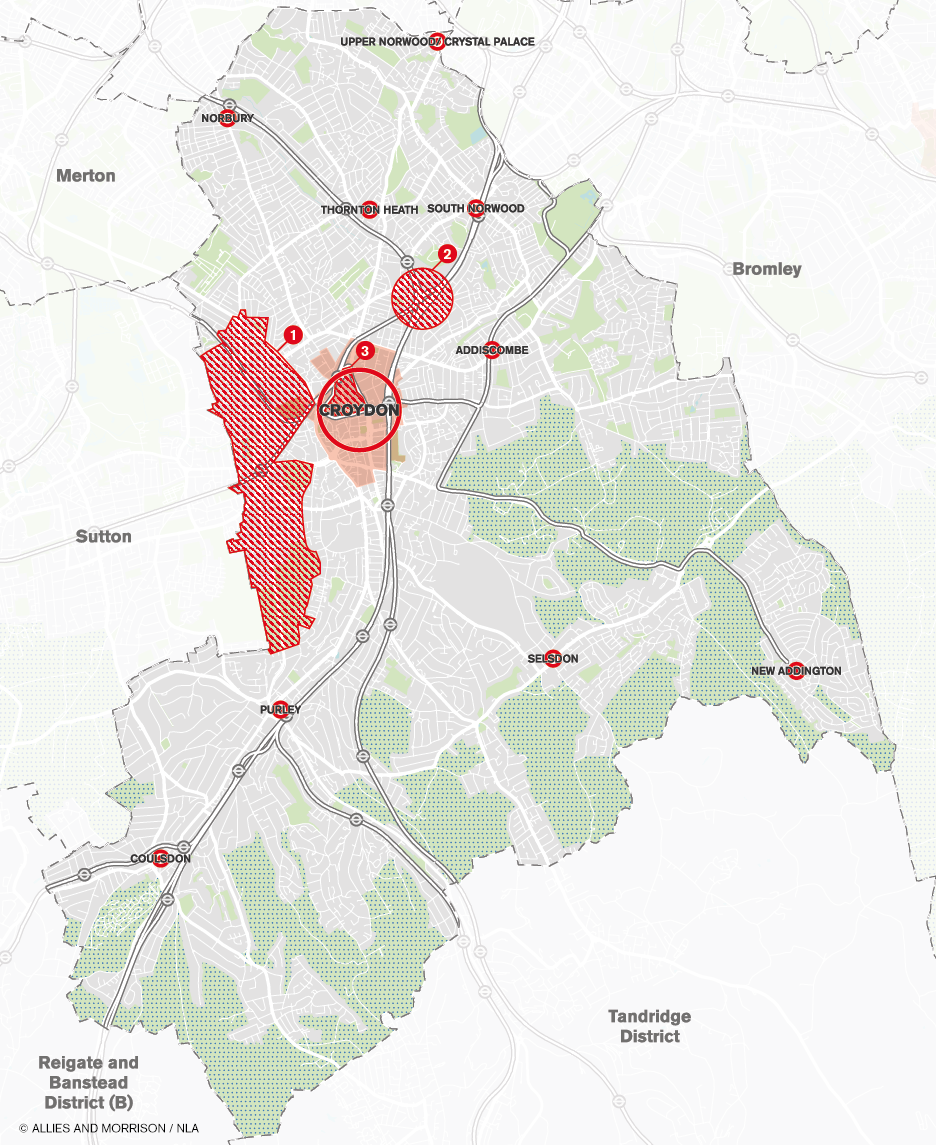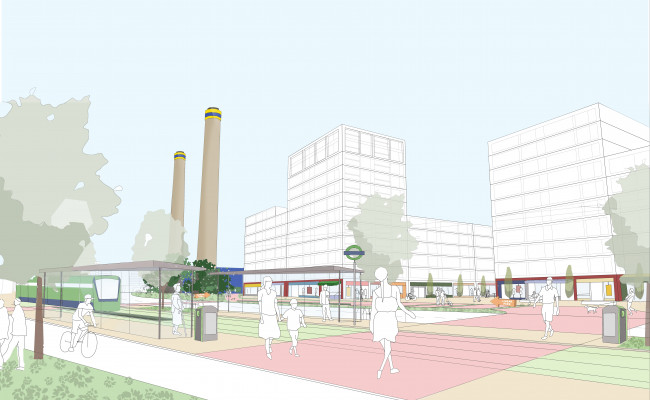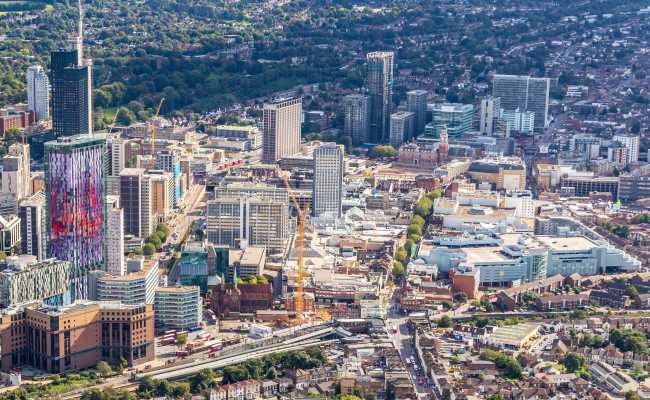

 Investment Opportunities
Investment Opportunities Opportunity Areas
Opportunity Areas Area of Intensification
Area of Intensification Central activity Zone
Central activity Zone International or metropolitan
International or metropolitan Major
Major District
District Borough Boundary
Borough Boundary Green Belt
Green Belt Metropolitan open land / Other open spaces
Metropolitan open land / Other open spaces Rail station
Rail station Railway track
Railway track Foreshore
Foreshore Water
Water
Croydon Council was awarded funding from the Mayor of London’s Homebuilding Capacity Fund to develop a holistic design-led masterplan and delivery strategy for the Purley Way. The council worked alongside a multidisciplinary team and local communities to develop a transformative vision for the future of the Purley Way area — from a hostile and divisive road, into a green city street which accommodates a cluster of four new distinct mixed-use centres. Each centre has a clear purpose and response to positive elements of local character and supports integration of existing and new communities. The masterplan co-ordinates a significant increase in the delivery of well-designed, sustainable homes, whilst also ensuring protection and intensification of designated employment areas, and enhancement of physical, social, cultural and digital infrastructure (including its public spaces, green, blue and sustainable transport networks). The spatial strategies within the masterplan have directly informed policies within a new Purley Way transformation area chapter in Croydon’s Local Plan Review. The masterplan will be adopted as a Supplementary Planning Document following the adoption of Croydon’s Local Plan Review.

The vision for the North End Quarter transformation area (as included in Croydon’s Local Plan Review) is to develop a sustainable, resilient, and safe destination for all. It will be a high-quality neighbourhood that complements and supports the surrounding masterplan areas in the town centre and includes retail as a balanced part of a more diverse mix of uses that delivers its future vitality and viability. The North End Quarter will build on its history to be an attractive visitor and resident destination with a vibrant public and cultural offer alongside retail and town centre uses. It will be an inclusive destination for all, including a network of streets, public spaces and facilities that improves connectivity, celebrates its heritage and a unique local character with green infrastructure and sustainable transport embedded throughout.
As one of London’s largest and most diverse boroughs, Croydon is a fantastic place to live, work and spend time, with all the benefits of close proximity to the rest of London and the south east.
The borough is made up of diverse communities that stretch from Crystal Palace to Coulsdon and from New Addington to Purley; with bustling district centres, plentiful green spaces and a urban town at its centre.
One of London’s largest commercial districts outside the centre, Croydon is a major hub of activity for workers and visitors; its excellent transport links include the iconic trams.
The borough has a richly diverse cultural scene and is known as the birthplace of music genres from punk to dubstep and the home of grime legend Stormzy. The renowned Brit School is continuing this legacy by nurturing a new generation of performers, with past alumni of Adele, Amy Winehouse and Tom Holland.
Croydon’s greatest strength is its people. London’s most populous borough, Croydon is home to 390,800 residents. Caring, passionate and principled, they take huge pride in coming together to improve their borough and help their communities.
Over the past decade, we have seen huge investment, regeneration and growth in our borough. Croydon remains an attractive and important part of London for ongoing growth and investment – growth from which we want to see all our communities benefit.

Census 2021 Estimates 390,800
Population projections 2050 just under 500,000

London plan new homes (ten-year target) 20,790
Building council homes for Londoners (four-year programme) 888
Steve Dennington, Head of Spatial Planning, Planning and Strategic Transport
steve.dennington@croydon.gov.uk
Carol Squires, Head of Employment, Skills and Economy
Una Foster, Senior Economic Development Officer
The Croydon Mayoral Business Plan sets the direction, building on the hopes and aspirations of our residents and businesses. The plan will transform the council into one that delivers sound and sustainable local government services, and in so doing will transform our borough into one that Croydon residents can once again be proud to call home.
We will support the regeneration of our town and district centres, deliver a vibrant London Borough of Culture and convene partners, developers, investors and Croydon’s diverse communities to create economic opportunity for all and enable residents to develop the skills needed to access it.